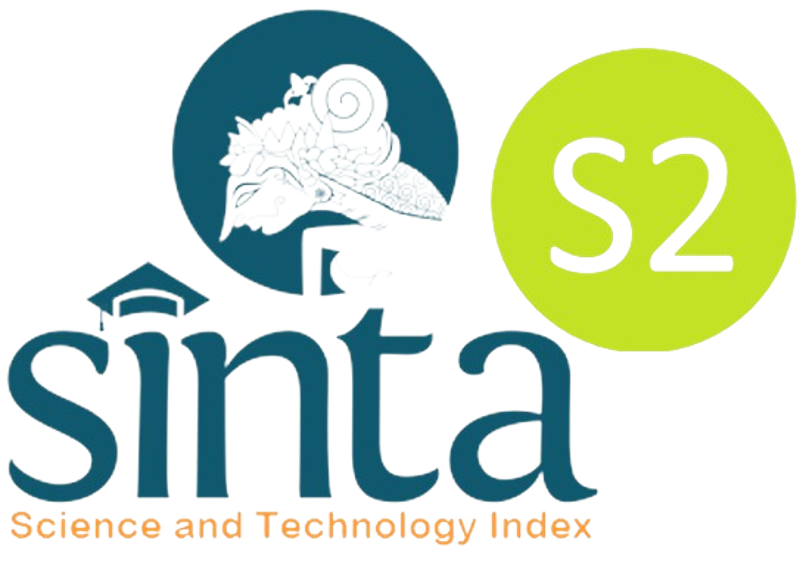Identification of Scientific Literacy of Elementary School Students in Central Lampung District
Abstract
Abstract: Identification of Scientific Literacy of Elementary School Students in Central Lampung District. Objective: Identify scientific literacy skills of elementary school students that can be actualized in the form of local government policies. Method: This descriptive study involved 36 schools with a total of 380 Elementary School students in Lampung Tengah District obtained using purposive sampling technique. Students appreciate with scientific literacy adapted from PISA questions (Programs for International Student Assessment) and scientific literacy data are analyzed descriptively. Findings: The results of the study showed that students who understand the concept were only 16.07%, misconcept are 8.6%, wrong concept are 37.5%, and missunderstand concept are 37.8%. Elementary students who understand the concept are still few for most of the questions especially competencies of interpret scientific data and evidence, procedural knowledge categories, and the content of the physical system area. Conclusion: Elementary students' scientific literacy in Central Lampung is still in the low category.
Keywords: scientific literacy, elementary school students, descriptive study.
Abstrak: Identifikasi Literasi Sains Siswa Sekolah Dasar di Kabupaten Lampung Tengah. Tujuan: Mengidentifikasi kemampuan literasi sains siswa sekolah dasar yang dapat diaktualisasikan dalam bentuk kebijakan pemerintah daerah. Metode: Penelitian deskriptif ini melibatkan 36 sekolah dengan total 380 siswa Sekolah Dasar (SD) di Kabupaten Lampung Tengah yang diperoleh dengan menggunakan purposive sampling technique. Siswa diuji dengan soal literasi sains yang diadaptasi dari soal PISA (Programme for International Students Assessment) dan data literasi sains dianalisis secara deskriptif. Temuan: Data hasil penelitian menunjukkan bahwa siswa yang paham konsep hanya 16,07%, siswa yang miskonsep 8,6%, siswa yang salah konsep 37,5%, dan siswa yang tidak paham konsep 37,8%. Siswa SD yang paham konsep sains masih sedikit setiap soal terutama pada kompetensi sains interpret data and evidence scientifically, kategori pengetahuan procedural, dan konten area physical system. Kesimpulan: Literasi sains siswa SD di Lampung Tengah masih dalam kategori rendah.
Kata kunci: literasi sains, siswa sekolah dasar, penelitian deskriptif.
Full Text:
PDFReferences
Adawiyah, R., & Wisudawati, A. W. (2017). Pengembangan Instrumen Tes Berbasis Literasi Sains : Menilai Pemahaman Fenomena Ilmiah Mengenai Energi. Indonesian Journal of Curriculum and Educational Technology Studies, 5(2), 112–121. https://doi.org/http://dx.doi.org/10.15294/ijcets.v3i1.8675
Aprianil, S., Sudin, A., & Panjaitan, R. L. (2017). Penerapan Contextual Teaching and Learning (Ctl) Untuk Meningkatkan Keterampilan Proses Sains Pada Materi Perubahan Sifat Benda. Penerapan Contextual Teaching and Learning (Ctl) Untuk Meningkatkan Keterampilan Proses Sains Pada Materi Perubahan Sifat Benda, 2(1), 401–410. https://doi.org/10.17509/jpi.v2i1.10675
Asyhari, A. (2015). Profil Peningkatan Kemampuan Literasi Sains Siswa Melalui Pembelajaran Saintifik. Jurnal Ilmiah Pendidikan Fisika Al-Biruni, 4(2), 179. https://doi.org/10.24042/jpifalbiruni.v4i2.91
Avikasari, A., Rukayah, R., & Indriayu, M. (2018). The Influence of Science Literacy-Based Teaching Material Towards Science Achievement. International Journal of Evaluation and Research in Education (IJERE). https://doi.org/10.11591/ijere.v7i3.14033
Becker, F. G. (2015). Description Of The REeleased Unit From The 2015 PISA Collaborative Problem-Solving Assessment, Collaborative Problem-Solving Skills, and Proficiency Levels. Washington: OECD.
Creswell, J. (2014). Research Design: Qualitative, Quantitative, and Mixed Methods Approaches. Los angeles: SAGE.
Darmawan, I. P. A., & Sujoko, E. (2013). Revisi Taksonomi Pembelajaran Benyamin S. Bloom. Satya Widya, 29(1), 30. https://doi.org/10.24246/j.sw.2013.v29.i1.p30-39
Fakhriyah, F., Masfuah, S., Roysa, M., Rusilowati, A., & Rahayu, E. S. (2017). Student’s science literacy in the aspect of content science? Jurnal Pendidikan IPA Indonesia, 6(1), 81–87. https://doi.org/10.15294/jpii.v6i1.7245
Fu’adah, H., Rusilowati, A., & Hartono, H. (2017). Pengembangan Alat Evaluasi Literasi Sains untuk Mengukur Kemampuan Literasi. Lembaran Ilmu Kependidikan, 46(September), 51–59.
Herlanti, Y., Mardiati, Y., Rahmawati, R., Putri, A. M. K., Jamil, N., Miftahuzzakiyah, M., … Sugiarti, S. (2019). Finding Learning Strategy in Improving Science Literacy. Jurnal Penelitian Dan Pembelajaran IPA, 5(1), 59. https://doi.org/10.30870/jppi.v5i1.4902
Kemdikbud. (2019). Neraca Pendidikan Daerah 2019. In Neraca Pendidikan Daerah 2019. Retrieved from https://npd.kemdikbud.go.id/
Nofiana, M., & Julianto, T. (2018). Upaya Peningkatan Literasi Sains Siswa Melalui Pembelajaran Berbasis Keunggulan Lokal. Biosfer Jurnal Tadris Pendidikan Biologi, 9(1), 24–35.
OECD. (2016). Overview: Excellence and Equity in Education. https://doi.org/10.1787/9789264266490-5-en
OECD. (2019). PISA 2018 insights and interpretations. OECD Publishing, 64. Retrieved from https://www.oecd.org/pisa/PISA 2018 Insights and Interpretations FINAL PDF.pdf
Sudarmani, Rosana, D., & Pujianto. (2018). Lesson Learned: Improving Students’ Procedural and Conceptual Knowledge through Physics Instruction with Media of Wave, Sound, and Light. Journal of Physics: Conference Series, 1097(1). https://doi.org/10.1088/1742-6596/1097/1/012033
Taylor, S., Bogdan, R., & Devault, M. (2016). Introduction to Qualitative Research Methods. New Jersey: Wiley.
Widowati, A., Widodo, E., Anjarsari, P., & Setuju. (2017). The Development of Scientific Literacy through Nature of Science (NoS) within Inquiry Based Learning Approach. Journal of Physics: Conference Series, 909(1). https://doi.org/10.1088/1742-6596/909/1/012067
Refbacks
- There are currently no refbacks.
Copyright (c) 2020 Jurnal Pendidikan Progresif

This work is licensed under a Creative Commons Attribution-ShareAlike 4.0 International License.
View My Stats

The copyright is reserved to The Jurnal Pendidikan Progresif that is licensed under a Creative Commons Attribution-ShareAlike 4.0 International License.






